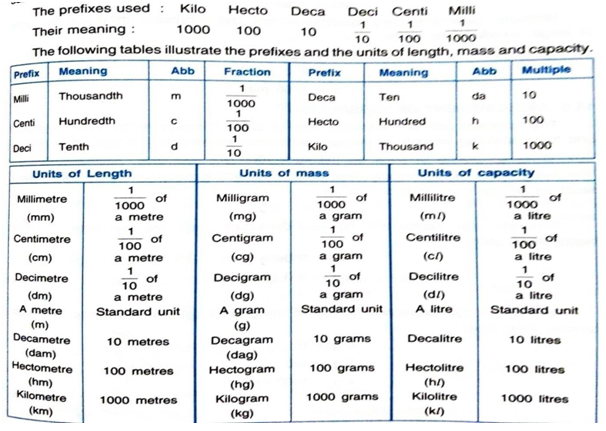CLASS-5
MEASUREMENT
MEASUREMENT -
Measurement is the process of quantifying or assigning a numerical value to a particular attribute or property of an object or phenomenon. It involves using standardized units or scales to describe and compare the magnitude or size of something. Measurements play a crucial role in various fields, including science, engineering, mathematics, economics, and everyday life.
In scientific and technical contexts, measurements are typically performed using instruments or tools specifically designed for the purpose. These instruments can range from simple devices like rulers, thermometers, or weighing scales to more complex equipment such as spectrometers, oscilloscopes, or particle detectors. Measurements can be made of various quantities, such as length, mass, time, temperature, pressure, voltage, frequency, or concentration, depending on the nature of the object or phenomenon being studied.
Accurate and precise measurement is important for ensuring consistency, reproducibility, and reliability of scientific experiments and observations. Standardization of units and calibration of measurement instruments are essential to ensure consistency and comparability of measurements across different laboratories and researchers. Internationally recognized systems of units, such as the International System of Units (SI), provide a standardized framework for measurement in various disciplines.
In addition to scientific measurements, we also use measurements in everyday life. For example, we measure distances when driving or walking, weigh ingredients while cooking, check the temperature of our surroundings, and use various other measurements to make decisions or solve problems.
Overall, measurements provide us with a means to quantify and describe the physical world around us, enabling us to make meaningful comparisons, analyze data, and gain a deeper understanding of the phenomena we observe.
Measurement is the process of quantifying or determining the size, amount, or degree of something. It involves comparing an unknown quantity to a known standard unit to obtain a numerical value. Measurement is used in various fields, including science, engineering, mathematics, and everyday life.
In scientific and technical contexts, measurements are often carried out using specialized instruments or devices designed for specific purposes. These instruments provide accurate and precise results, allowing scientists and engineers to gather data and make informed decisions.
Measurements can be classified into different types depending on the property being measured. Some common types of measurements include :-
- Length: Measuring the extent or distance between two points. The standard unit of length in the International System of Units (SI) is the meter (m).
- Mass: Measuring the amount of matter in an object. The standard unit of mass in the SI system is the kilogram (kg).
- Time: Measuring the duration or sequence of events. The standard unit of time in the SI system is the second (s).
- Temperature: Measuring the degree of hotness or coldness. The standard unit of temperature in the SI system is the Kelvin (K), although Celsius (°C) and Fahrenheit (°F) are commonly used in everyday life.
- Volume: Measuring the amount of space occupied by an object or substance. The standard unit of volume in the SI system is the cubic meter (m³).
- Electric current: Measuring the flow of electric charge. The standard unit of electric current in the SI system is the ampere (A).
- Pressure: Measuring the force applied per unit area. The standard unit of pressure in the SI system is the pascal (Pa).
- Energy: Measuring the capacity to do work. The standard unit of energy in the SI system is the joule (J).
These are just a few examples of the many types of measurements that exist. Accurate and precise measurements are crucial for scientific research, engineering design, quality control, and various other applications.
We use the metric system of measurement to measure length, mass and capacity. Standard units for measuring length, mass and capacity are as follows:
· Length : The standard unit is meter.
· Mass : The standard unit is gram.
· Capacity (Volume) : The standard unit is liter.
However, often we require to measure smaller or bigger quantities and the standard units are not suitable for measurement. In such cases we use multiples or sub-multiples of these units. We use certain prefixes to indicate smaller and bigger units so formed.
